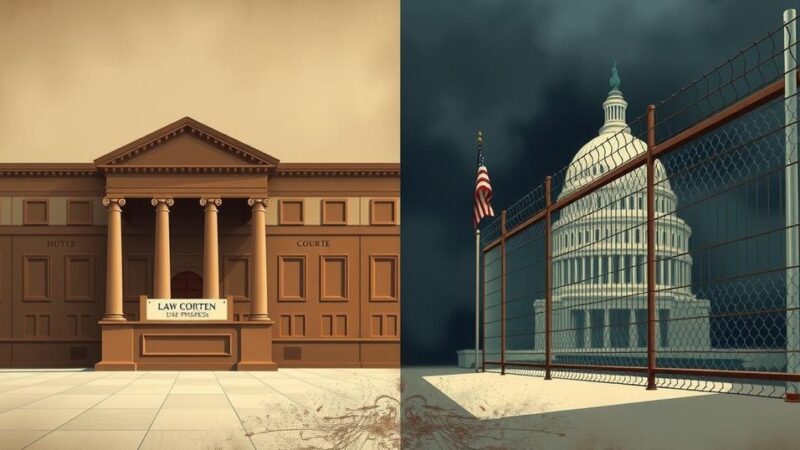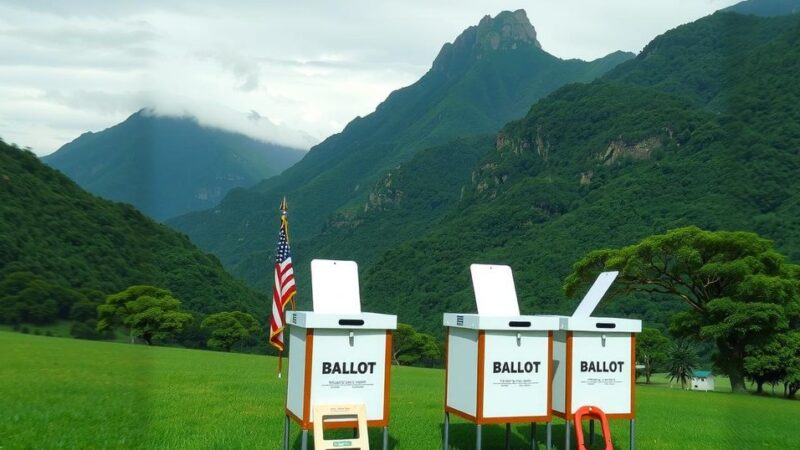Yamandu Orsi has assumed the presidency of Uruguay, signifying a center-left political shift. Supported by former president Pepe Mujica, Orsi plans to balance social welfare with economic growth. He confronts social issues, pledging to reduce poverty while avoiding tax increases. In foreign policy, the government aims to navigate pressures from the U.S. and maintain relations with China amid trade negotiations.
Uruguay has transitioned towards a center-left political stance with the inauguration of Yamandu Orsi as president. Orsi, a 57-year-old former mayor endorsed by previous leftist president Jose “Pepe” Mujica, achieved a narrow victory over the incumbent center-right coalition in the November election. He intends to implement a “modern left” agenda that prioritizes social welfare alongside economic growth, maintaining the nation’s relatively stable environment.
During his inaugural address at the Legislative Palace in Montevideo, Orsi expressed his vision for governance, stating that this era calls for “new proposals and permanent construction.” He acknowledged outgoing president Luis Lacalle Pou during the ceremony, emphasizing continuity rather than dramatic policy changes. Uruguay, renowned for its agriculture and cannabis-related policies, is bracing for steady economic growth, though ongoing issues such as high living costs and crime have tested the prior government’s popularity.
Addressing societal issues, more than 18% of Uruguayans reportedly lived in “multidimensional” poverty, according to the National Statistics Agency. The incoming government aims to support the underprivileged and stimulate economic development without increasing taxes. Orsi’s coalition, bolstered by a senate majority, is poised to influence the country’s future positively.
On the foreign policy front, the new administration faces challenges amid escalating global trade tensions, particularly maintaining a balance between relations with China, its largest trading partner, and the United States. Analyst Nicolas Saldias noted that the government must navigate pressures from U.S. interests regarding Chinese investments in sectors like infrastructure.
The Uruguayan government has been negotiating a bilateral trade agreement with China since 2021, while also pursuing broader trade agreements within Mercosur. Orsi’s foreign policy approach diverged from previous norms, particularly evidenced by his decision to invite regional leaders to his inauguration, reflecting his presidency’s positioning within a complex geopolitical landscape.
In summary, the inauguration of Yamandu Orsi marks a significant shift towards center-left governance in Uruguay, focusing on social welfare and economic development. The new administration intends to address pressing societal issues while navigating complex foreign relations, particularly with the U.S. and China. Overall, Orsi’s leadership is anticipated to prioritize a balanced approach to growth and inclusivity as Uruguay moves forward.
Original Source: www.usnews.com






